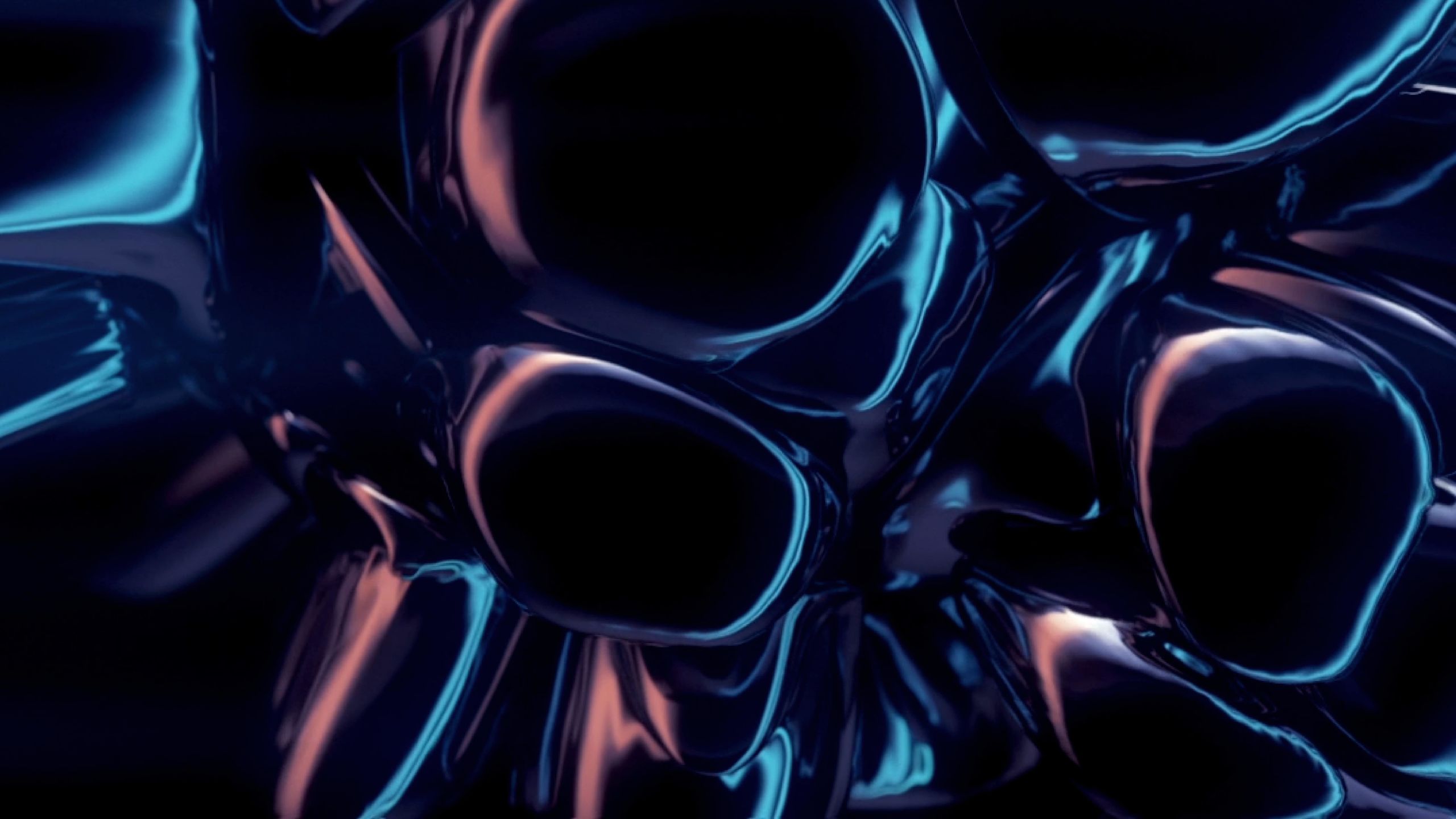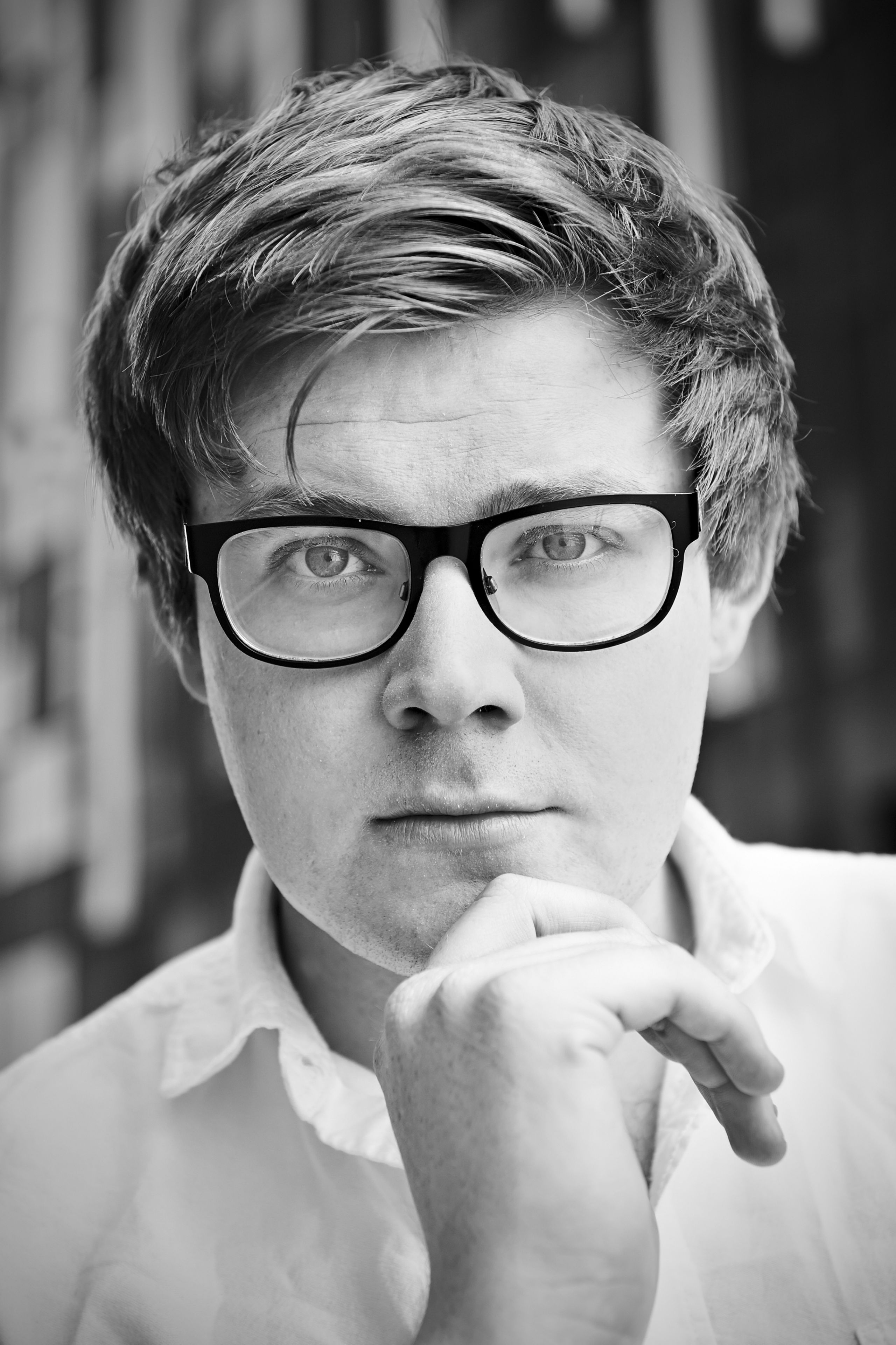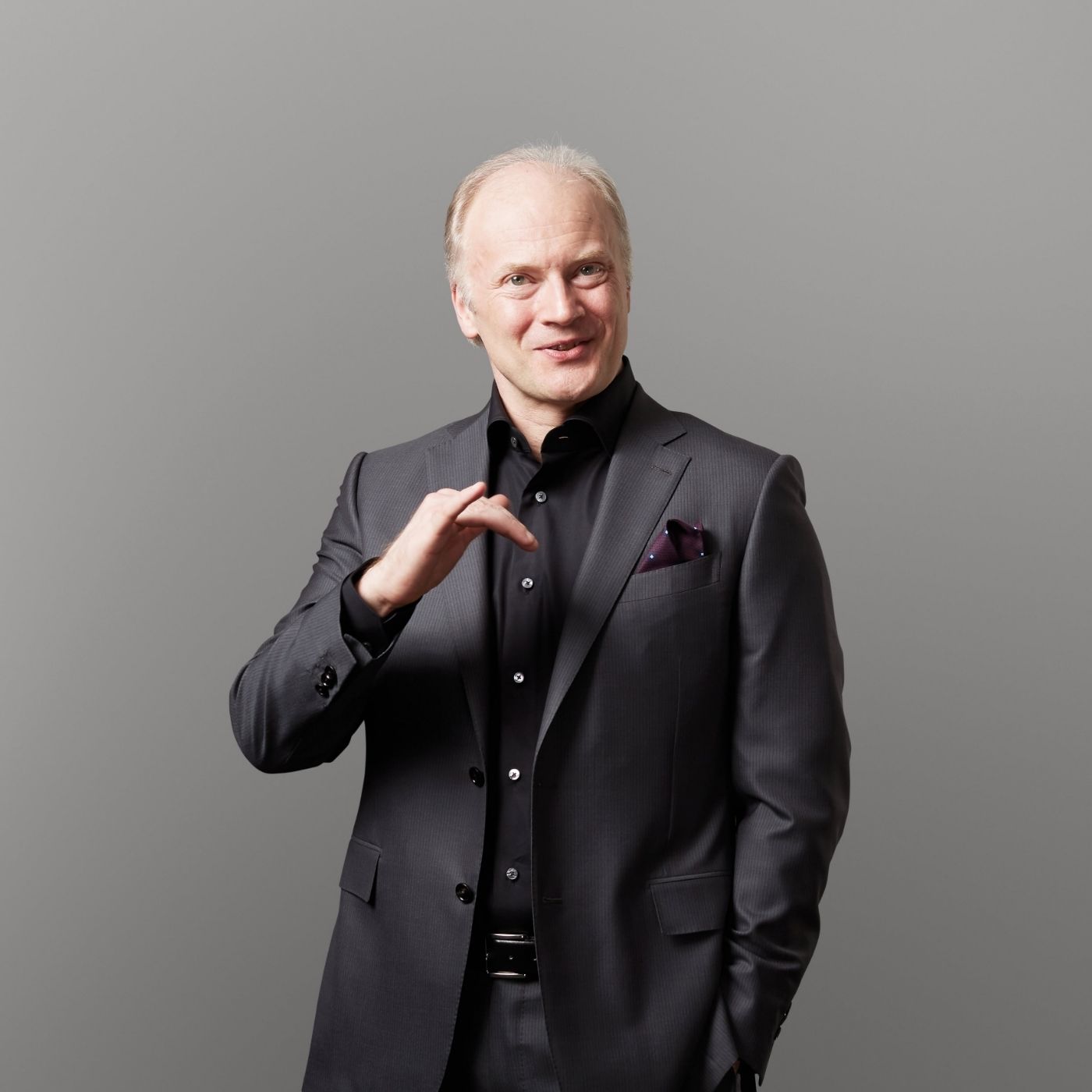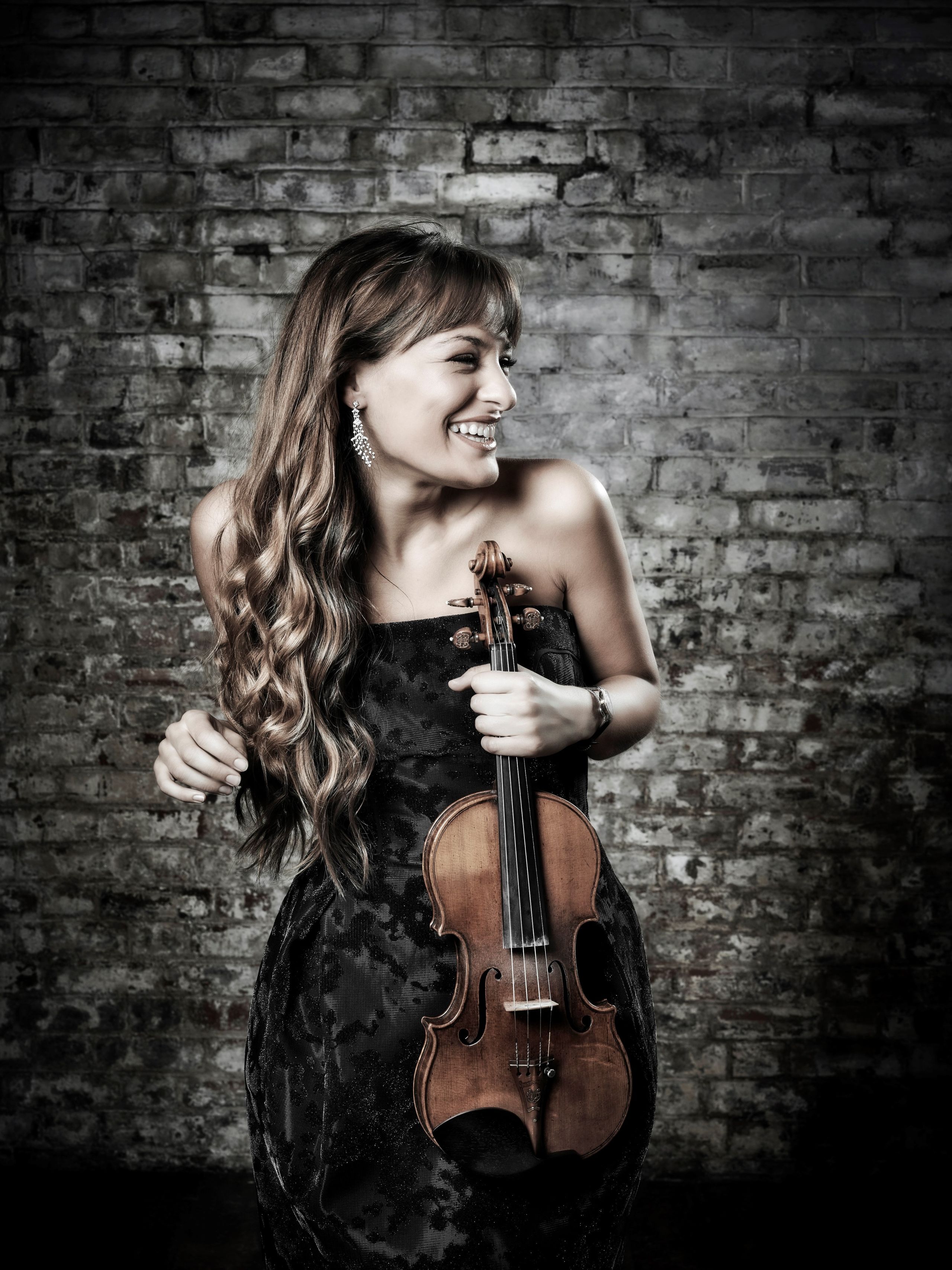London Symphony Orchestra
Mark Simpson & Tchaikovsky

Welcome and Thank You for Watching
Whilst we are unable to come together with audiences at our Barbican home, we are pleased to continue releasing a programme of online content and streamed broadcasts, making music available for everyone to enjoy digitally in the coming weeks. A warm welcome to the numerous conductors and soloists joining us, among them many firm friends and regular collaborators with the Orchestra. We are delighted also to welcome back members of our family of conductors.
It is a pleasure to invite you to watch and listen today online, and we extend thanks to our broadcast partner Marquee TV for streaming this concert. We are particularly delighted that this performance marks the world premiere of Mark Simpson's Violin Concerto, with soloist Nicola Benedetti, and we thank the supporters of this concert: the Ernst von Siemens Music Foundation, The Marchus Trust and Intesa Sanpaolo Private Bank Suisse Morval, London Branch.
I hope you enjoy the performance, and look forward to welcoming you back in person when we are able to re-open our doors. Our return concerts at the Barbican in May and June are now on sale; visit our website for full details.

Kathryn McDowell CBE DL; Managing Director
Kathryn McDowell CBE DL; Managing Director
Tchaikovsky’s last symphony, which lays heart and soul on the line, and a brand new violin concerto from the imaginative composer Mark Simpson, performed by the one and only Nicola Benedetti.
Thursday 29 April 2021
Mark Simpson & Tchaikovsky
Mark Simpson Violin Concerto (world premiere, LSO Commission*)
Pyotr Ilyich Tchaikovsky Symphony No 6, 'Pathétique'
Gianandrea Noseda conductor
Nicola Benedetti violin
London Symphony Orchestra
* Commissioned by the London Symphony Orchestra (with the support of the Ernst von Siemens Music Foundation and The Marchus Trust), WDR Sinfonieorchester, Cincinnati Symphony Orchestra and Royal Scottish National Orchestra.
This concert is generously supported by the Ernst von Siemens Music Foundation, The Marchus Trust and Intesa Sanpaolo Private Bank Suisse Morval, London Branch.


This performance is broadcast on Marquee TV. Available to watch for free for seven days from 29 April, then on demand with a subscription.
Recorded at LSO St Luke's on Sunday 11 April in COVID-19 secure conditions.
Support the LSO's Future
The importance of music and the arts has never been more apparent than in recent months, as we’ve been inspired, comforted and entertained throughout this unprecedented period.
As we emerge from the most challenging period of a generation, please consider supporting the LSO's Always Playing Appeal to sustain the Orchestra, allow us to perform together again on stage and to continue sharing our music with the broadest range of people possible.
Every donation will help to support the LSO’s future.
You can also donate now via text.
Text LSOAPPEAL 5, LSOAPPEAL 10 or LSOAPPEAL 20 to 70085 to donate £5, £10 or £20.
Texts cost £5, £10 or £20 plus one standard rate message and you’ll be opting in to hear more about our work and fundraising via telephone and SMS. If you’d like to give but do not wish to receive marketing communications, text LSOAPPEALNOINFO 5, 10 or 20 to 70085. UK numbers only.
The London Symphony Orchestra is hugely grateful to all the Patrons and Friends, Corporate Partners, Trusts and Foundations, and other supporters who make its work possible.
The LSO’s return to work is supported by DnaNudge.
Generously supported by the Weston Culture Fund.
Share Your Thoughts
We always want you to have a great experience, however you watch the LSO. Please do take a few moments at the end to let us know what you thought of the streamed concert and digital programme. Just click 'Share Your Thoughts' in the navigation menu.
Mark Simpson
Violin Concerto
(world premiere)
✒️2020 to 2021 | ⏰36 minutes

for Nicola Benedetti
1 Lamentoso
2 Dance
3 Andante Amoroso
4 Cadenza
5 Presto con fuoco – Finale
I started my Violin Concerto just before the UK’s first Covid-19 lockdown in March 2020, and my initial musical ideas were hopeful, singing, full of life. As the pandemic worsened I quickly realised that it was impossible to ‘carry on as normal’ and the work would need to explore a different set of responses.
The concerto begins, quietly, calmly, as if from nowhere, with a statement of B-flat minor in the strings, over which the violin laments, drawing us into a world of stillness and reflection. A moment of transition launches us directly into the next movement.
Movement two is a fast, energetic dance that is in essence a response to having a huge amount of pent-up energy that I was unable to release during the period of lockdown restrictions. It hurtles us through various balletic tableaux.
Movement three is an impassioned love song tinged with moments of darkness.
The Cadenza fourth movement provides us with another moment of stillness and revisits material from the second movement.
The fifth movement begins with a devilish A minor tarantella that leads directly to the Finale. This opens with a simple melody in the violin which is then passed through winds, strings and brass, guiding us to a wild, raucous, energy-filled climax that leads to the work’s close.
Note by Mark Simpson
Commissioned by the London Symphony Orchestra (with the support of the Ernst von Siemens Music Foundation and The Marchus Trust), WDR Sinfonieorchester, Cincinnati Symphony Orchestra and Royal Scottish National Orchestra.
Mark Simpson
b 1988 (United Kingdom)
Mark Simpson © Kaupo Kikkas
Mark Simpson © Kaupo Kikkas
Composer and clarinettist Mark Simpson (b 1988, Liverpool) became the first ever winner of both the BBC Young Musician of the Year and BBC Proms/Guardian Young Composer of the Year competitions in 2006. He went on to read Music at St Catherine’s College, Oxford and studied composition with Julian Anderson at the Guildhall School of Music & Drama. Simpson was a BBC New Generation Artist from 2012 to 2014 and received a Borletti-Buitoni Trust Fellowship in 2014. In 2015 he was appointed Composer in Association of the BBC Philharmonic for a period of four years.
Simpson’s oratorio The Immortal was premiered by the BBC Philharmonic at the 2015 Manchester International Festival to immediate critical acclaim. Other works with orchestra include Israfel, premiered by the BBC Scottish Symphony Orchestra, sparks commissioned for the 2012 Last Night of the Proms and A mirror-fragment… written for the Royal Liverpool Philharmonic Orchestra. His first opera Pleasure was commissioned by Opera North, the Royal Opera and Aldeburgh Music and premiered in 2016.
Chamber works include Hommage à Kurtág for clarinet, piano and viola, commissioned by the Salzburg and Edinburgh International festivals for premiere in 2016 by Simpson alongside Pierre-Laurent Aimard and Antoine Tamestit, and a solo clarinet work Darkness Moves commissioned by the Borletti-Buitoni Trust. Under his Composer in Association role with the BBC Philharmonic Simpson has composed a Cello Concerto for Leonard Elschenbroich in 2018 and a Clarinet Concerto for himself as soloist in 2019. His most recent work is his Violin Concerto for Nicola Benedetti.
A collection of Simpson's chamber works, entitled Night Music, was released in 2016 by NMC and 2020 brought a recording of wind ensemble music on Orchid Classics combining Simpson's Geysir with Mozart's Gran Partita. Simpson continues to perform widely as a soloist and chamber musician, with recent highlights including Nielsen’s Clarinet Concerto at the BBC Proms with the BBC Symphony Orchestra and Sir Andrew Davis, and Messiaen’s Quatuor pour la fin du temps at the Aldeburgh Festival with Pierre-Laurent Aimard, Isabelle Faust and Jean-Guihen Queyras. In 2016 he performed Magnus Lindberg’s Clarinet Concerto with the BBC Philharmonic in Manchester, with the Mozarteum Orchestra in Salzburg conducted by HK Gruber and at the 2018 BBC Proms. Recent highlights included a feature as composer and performer at the 2020 Trondheim Chamber Music Festival.
Composer profile reprinted by kind permission of Boosey & Hawkes
Pyotr Ilyich Tchaikovsky
Symphony No 6 in B minor Op 74, ‘Pathétique’
✒️1893 | ⏰47 minutes

1 Adagio – Allegro non troppo
2 Allegro con grazia
3 Allegro molto vivace
4 Finale: Adagio lamentoso
When 19th-century composers wrote minor-key symphonies they generally followed the Beethoven ‘darkness-to-light’ model; and even if the finale ended in a dark minor key (like Brahms’ Fourth) it would normally be a fast, passionate movement, more defiant than tragic. The quiet, despairing ending of Tchaikovsky’s Sixth Symphony was unprecedented. This symphony is the record of a deeply personal experience, expressed with a power that leaves one in no doubt either of Tchaikovsky’s musical mastery or the intensity of his feelings, but it is certainly not music for people who are embarrassed by the expression of strong emotions.
In the autumn of 1892 Tchaikovsky sketched a new symphony but soon put it aside, feeling that something was wrong: he realised that he had been writing out of habit, without any deep commitment, and it was an altogether different sort of symphony that he needed to compose. The sketches were recycled into a third piano concerto, and by the following February the new work was well underway. He completed the orchestration on the last day of August and immediately wrote to his brother Anatoly, ‘I’m very proud of the Symphony, and I think it’s the best of my works’.
He conducted the first performance on 28 October 1893 in St Petersburg. The response was polite, but apparently not enthusiastic. Tchaikovsky, who was usually extremely sensitive to audiences’ reactions, was not upset on this occasion: ‘it’s not that it displeased, but it produced some bewilderment. As far as I myself am concerned, I take more pride in it than in any other of my works’, he wrote to his publisher.
When composing it, Tchaikovsky had admitted that it was a symphony ‘with a programme, but with a programme of a kind which remains an enigma to all – let them guess it who can’. We cannot know exactly what Tchaikovsky had in mind; he never wanted to ‘explain’ his music in any other terms, and when the work was performed it was simply billed as: Sixth Symphony, B minor. On the morning after the first performance, about to send the score for engraving, Tchaikovsky could not make up his mind whether to give it a title at all. He didn’t like the idea of either ‘Tragic Symphony’ or ‘Programme Symphony’, and it was his brother Modest who suggested a title in French: ‘Pathétique’. It sounds odd in English, with its suggestion of weakness or inadequacy. In French and Russian (‘Pateticheskaya’) the word is more serious, implying the expression of deep feeling and suffering.
Listening Guide
The first movement of the ‘Pathétique’, from its opening bassoon crawling up from the depths to its hushed ending, includes a wide variety of musical images. As always in Tchaikovsky, it is the lyrical idea that propels the music; and the economy of texture, rhythmic vitality and clarity of instrumentation ensure that these images strike the listener with immediate force. It is a drama of contrasts, of personal passion struggling against hostile forces.
The second movement is calm and urbane, redolent of the world of Tchaikovsky’s ballets. It sounds like a waltz, although it is not written in a triple-time waltz metre but with a strangely unsettled five beats to the bar. The following march is as brilliant and thrilling as anything Tchaikovsky wrote, but for all its frantic activity there is a deliberate lack of melodic focus: it is long before the march rhythms and orchestral ferment settle down to reveal an actual tune.
In both the second and third movements there appears a figure of a downward scale which is heard so often in Tchaikovsky’s music, and which he associated with Fate, that power which Tchaikovsky believed ruled his life and which he once grimly described as: ‘the fatal force which prevents our hopes of happiness from being realised, and which watches jealously to see that our bliss and happiness are never complete and unclouded … it is inescapable and it can never be overcome’.
This descending ‘Fate’ figure shapes both themes of the Finale. On its first appearance the second of them begins consolingly in the major mode and rises to a climax of passionate protest – perhaps a last desperate attempt to find love and happiness. On its reappearance it sinks lower and lower, ebbing away into darkness and silence.
His Last Symphony
Five days after conducting the ‘Pathétique’, Tchaikovsky was taken ill, and he died four days later. The official version of events was that he drank a glass of unboiled water and contracted cholera. There were vague rumours of suicide – in the 1970s a story emerged from Russia, passed down over 80 years by word of mouth, that Tchaikovsky had been summoned to a ‘court of honour’ composed of ex-students of the St Petersburg School of Jurisprudence, where he had studied as a young man. This court, apparently, presented Tchaikovsky with two alternatives: they would publicly expose an affair he had been having with a young nobleman, prompting disgrace and probable criminal proceedings, or Tchaikovsky could die by suicide. For all its implausibilities and the absence of any corroborating evidence, it is a story with weight for those who would like to hear the Sixth Symphony as a premonition of an ending to an unhappy life.
Whatever the truth of the events surrounding Tchaikovsky’s death, though, there is no evidence at all of suicidal depression during the time he planned and composed the Sixth Symphony. The obvious pride he took in it suggests, on the contrary, a rare period when his art was able to compensate for the loneliness of his life, when the perfect musical expression of his own character allowed him greater peace of mind than he had enjoyed for many years.
Note by Andrew Huth
Pyotr Ilyich Tchaikovsky
1840 to 1893 (Russia)

Born in Kamsko-Votkinsk in the Vyatka province of Russia on 7 May 1840, Tchaikovsky’s father was a mining engineer, his mother of French extraction. In 1848 the family moved to the imperial capital, St Petersburg, where Pyotr was enrolled at the School of Jurisprudence. He overcame his grief at his mother’s death in 1854 by composing and performing, and music remained a diversion from his job – as a clerk at the Ministry of Justice – until he enrolled as a full-time student at the St Petersburg Conservatory in 1863.
His First Symphony was warmly received at its St Petersburg premiere in 1868. Swan Lake, the first of Tchaikovsky’s three great ballet scores, was written in 1876 for Moscow’s Bolshoi Theatre. Between 1869 and the year of his death Tchaikovsky composed over 100 songs, cast mainly in the impassioned Romance style and textually preoccupied with the frustration and despair associated with love, conditions that characterised his personal relationships.
Tchaikovsky’s hasty decision to marry an almost unknown admirer in 1877 proved a disaster, his homosexuality combining strongly with his sense of entrapment. By now he had completed his Fourth Symphony, was about to finish his opera Eugene Onegin, and had attracted the considerable financial and moral support of Nadezhda von Meck, an affluent widow. She helped him through his personal crisis and in 1878 he returned to composition with the Violin Concerto. Tchaikovsky claimed that his Sixth Symphony represented his best work. The mood of crushing despair heard in all but the work’s third movement reflected the composer’s troubled state of mind. He died nine days after its premiere on 6 November.
Composer profile by Andrew Stewart
Artist Biographies

Gianandrea Noseda
LSO Principal Guest Conductor
Gianandrea Noseda is one of the world’s most sought-after conductors, equally recognised for his artistry in the concert hall and opera house. He is Principal Guest Conductor of the London Symphony Orchestra and has been Music Director of the National Symphony Orchestra since the 2017/18 season. In 2018, his initial four-year contract was extended for four more years, up to and including the 2024/25 season.
In 2019, Noseda and the National Symphony Orchestra, which has its home at the Kennedy Center in Washington DC, earned rave reviews for their first concerts together at New York’s Carnegie Hall and Lincoln Center. The 2019/20 season saw their artistic partnership continue to flourish with the launch of a new recording label distributed by LSO Live.
Noseda also serves as Principal Guest Conductor of the Israel Philharmonic Orchestra and Artistic Director of the Stresa Festival in Italy. In the 2021/22 season, Noseda became General Music Director of the Zurich Opera House, where he will lead his first Ring Cycle. From 2007 to 2018, Noseda served as Music Director of the Teatro Regio Torino, where his leadership and his initiatives propelled the company’s global reputation.
Noseda has worked with the world’s leading orchestras, opera houses and festivals including the Bavarian Radio Symphony Orchestra, Berlin Philharmonic, Cleveland Orchestra, Filarmonica della Scala, Metropolitan Opera, New York Philharmonic, Orchestre de Paris, Orchestre National de France, Orchestra dell'Accademia Nazionale di Santa Cecilia, Philharmonia Zurich, Philadelphia Orchestra, Rotterdam Philharmonic, Royal Concertgebouw Orchestra, Royal Opera House (London), Salzburg Festival, Tonhalle Orchestra, Vienna Philharmonic and Vienna Symphony Orchestra.
In addition to his recordings for LSO Live, Noseda has an extensive discography of over 60 recordings for Chandos and Deutsche Grammophon, among others. He has championed the works of neglected Italian composers through his Musica Italiana recordings for Chandos. The most recent recording in this series – Dallapiccola’s Il Prigioniero with the Danish National Symphony Orchestra – has been critically acclaimed and named Gramophone magazine’s August 2020 Recording of the Month.
Noseda is closely involved with the next generation of musicians through his work as Music Director of the Tsinandali Festival and Pan-Caucasian Youth Orchestra, as well as with other youth orchestras, including the European Union Youth Orchestra.
A native of Milan, Noseda is Commendatore al Merito della Repubblica Italiana, marking his contribution to the artistic life of Italy. In 2015, he was Musical America’s Conductor of the Year, and was named the 2016 International Opera Awards Conductor of the Year.
Nicola Benedetti
violin
Nicola Benedetti is one of the most sought-after violinists of her generation. Her ability to captivate audiences and her wide appeal as an advocate for classical music has made her one of the most influential artists of today.
This season Nicola collaborated with the Orchestra of the Age of Enlightenment for live concerts at the BBC Proms 2020 and on digital projects for the Philharmonia and Paavo Järvi and the Scottish Chamber Orchestra with Maxim Emelyanychev. Additionally, Nicola performed with the Spanish National Orchestra and the Pittsburgh Symphony with Pablo Heras-Casado. She is also Artist in Residence for the St Louis Symphony and performs several concerts, recitals and masterclasses throughout the season.
Last season’s highlights included Nicola’s debut with the Wiener Symphoniker, a tour of Asia with the Deutsches Symphonie-Orchester Berlin and Robin Ticciati, plus returning performances with Vladimir Jurowski and the London Philharmonic Orchestra, Michael Tilson Thomas with both the New World Symphony and the London Symphony Orchestras, City of Birmingham Symphony Orchestra, Scottish Chamber Orchestra and a European tour with Thomas Søndergård and the Royal Scottish National Orchestra.
Nicola has continued her role as a dedicated, passionate ambassador and leader in music education. Her commitment to supporting the UK’s music practitioners was underlined in July 2018, when Nicola took over as President of the European String Teachers’ Association. She has formalised her vision and expanded her commitment to the education of young people and support of music teachers by establishing a charitable organisation: The Benedetti Foundation. Launched in January 2020, The Benedetti Foundation puts on transformative workshops for young people and teachers, showcasing what music education at its best can look and feel like. The Foundation has delivered four live sessions throughout the UK and in May 2020, during lockdown, the Foundation went online with 'virtual sessions' providing over 7,000 musicians across the globe with online tutorials and inspirational workshops.
Winner of the GRAMMY Award for Best Classical Instrumental Solo in 2020, as well as Best Female Artist at both the 2012 and 2013 Classical BRIT Awards, Nicola records exclusively for Decca (Universal Music). Her latest recording of Elgar’s Violin Concerto entered at number one in the UK’s Official Classical Album Chart. Other recent recordings include her GRAMMY award-winning album written for her by jazz musician Wynton Marsalis: Violin Concerto in D and Fiddle Dance Suite for Solo Violin.
Nicola was appointed a CBE in 2019, awarded the Queen’s Medal for Music (2017), and an MBE in 2013. In addition, Nicola holds the positions of Vice President (National Children’s Orchestras), Big Sister (Sistema Scotland) and Patron (National Youth Orchestras of Scotland’s Junior Orchestra, Music in Secondary Schools Trust and Junior Conservatoire at the Royal Conservatoire of Scotland).
Nicola plays the Gariel Stradivarius (1717), courtesy of Jonathan Moulds.
London Symphony Orchestra
The London Symphony Orchestra was established in 1904, and is built on the belief that extraordinary music should be available to everyone, everywhere.
Through inspiring music, educational programmes and technological innovations, the LSO’s reach extends far beyond the concert hall.
Visit our website to find out more.

On Stage
Leader
Carmine Lauri
First Violins
Clare Duckworth
Ginette Decuyper
Laura Dixon
Gerald Gregory
Maxine Kwok
William Melvin
Laurent Quenelle
Harriet Rayfield
Sylvain Vasseur
Alix Lagasse
Lyrit Milgram
Second Violins
David Alberman
Thomas Norris
Sarah Quinn
Miya Väisänen
Matthew Gardner
Naoko Keatley
Csilla Pogany
Iwona Muszynska
Andrew Pollock
Paul Robson
Violas
Edward Vanderspar
Malcolm Johnston
Anna Bastow
German Clavijo
Stephen Doman
Carol Ella
Sofia Silva Sousa
Robert Turner
Cellos
Rebecca Gilliver
Alastair Blayden
Noel Bradshaw
Eve-Marie Caravassilis
Daniel Gardner
Amanda Truelove
Double Basses
David Stark
Colin Paris
Thomas Goodman
José Moreira
Flutes
Gareth Davies
Clare Findlater
Piccolo
Sharon Williams
Oboes
Olivier Stankiewicz
David Hedley
Clarinet
Chris Richards
Chi-Yu Mo
Bass Clarinet
Katy Ayling
Bassoons
Daniel Jemison
Dominic Tyler
Contra Bassoons
Dominic Morgan
Horns
Timothy Jones
Angela Barnes
Alexander Edmundson
Flora Bain
Tim Ball
Trumpets
Jason Evans
Niall Keatley
David Geoghegan
Trombones
Peter Moore
Richard Ward
Bass Trombone
Paul Milner
Tuba
Ben Thomson
Timpani
Nigel Thomas
Percussion
Neil Percy
David Jackson
Sam Walton
Tom Edwards
Paul Stoneman
Harps
Bryn Lewis
Meet the Members of the LSO on our website
Thank You for Watching









